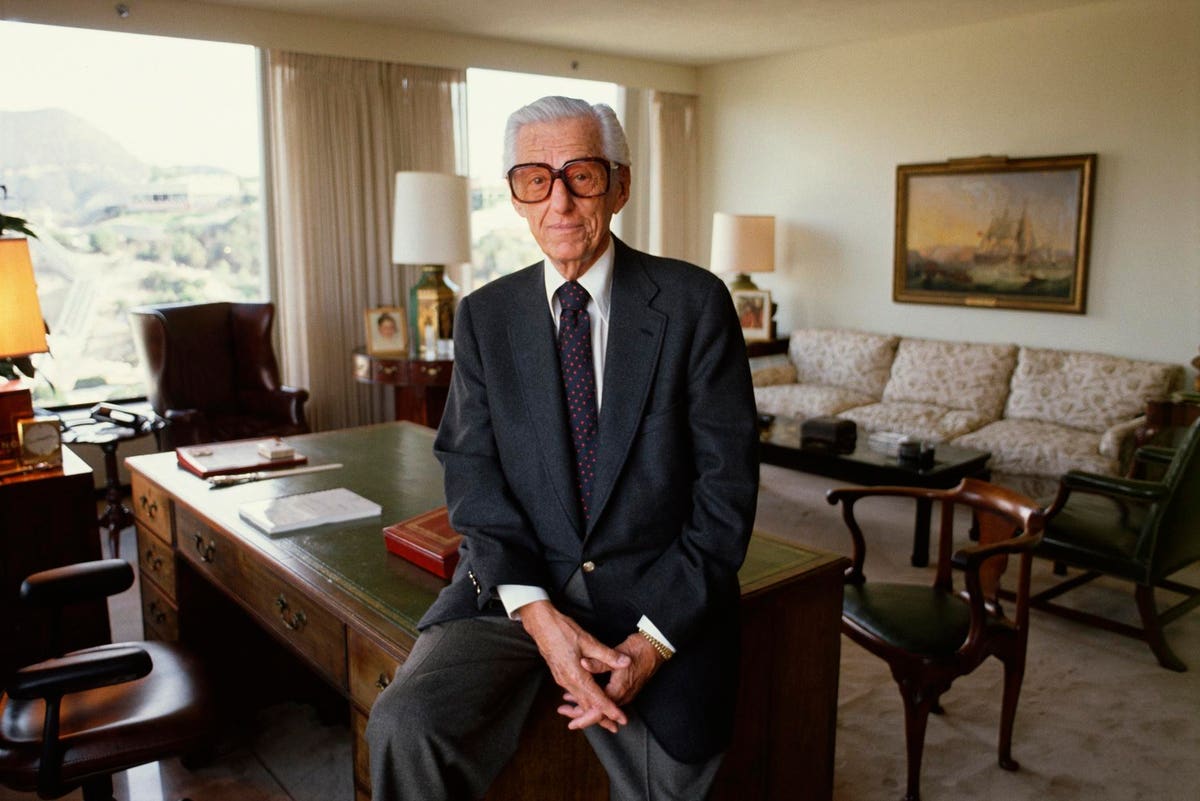Casey Wasserman was able to accomplish in his lifetime what his storied grandfather, Lew Wasserman, was unable to do. With the acquisition of Brillstein Entertainment Company, Wasserman now represents talent and owns content across all of sports and entertainment.
Chairman of Los Angeles 2028 Casey Wasserman during the LA 2028 (Photo by Buda Mendes/Getty Images)
Getty Images
It Goes Back To ‘Showtime’
I have always treated sports and entertainment as one and now the world has fully caught up. I saw this coming many years ago while representing Shaquille O’Neal. Our plan was to converge sports, marketing, movies, television, and music to add fuel to the Shaq brand and the results were spectacular.
Shaq was a platinum recording artist, starred in major motion pictures and television shows, and starred in some of the most iconic commercials featuring any athlete. We created the “Rap and Jam” and went on a global tour with the first combination of basketball and music wrapped into a single event.
Over the years, the lines between sports and entertainment have progressively blurred as sports has incorporated more aspects of traditional entertainment. It started with the Los Angeles Lakers and what came to be known as “Showtime”— and today you would be hard pressed to attend a major sporting event without a musical performance. Moreover, many of today’s top athletes are actors and producers of content across all platforms (including social media), and owners of content production companies: Lebron James’ production company, Spring Hill, Kevin Durant’s 35 Ventures, and Stephen Curry’s Unanimous Media.
Wasserman Brings Things Full Circle
Wasserman’s recent acquisition of Brillstein Entertainment represents a final validation that sports and entertainment should be viewed holistically rather than separately. Both sports and entertainment are diversions from reality competing for a share of audience attention and ultimately a share of finite revenue.
This acquisition is also a full-circle moment for Wasserman owner, Casey Wasserman. Historically, the legalities in the entertainment agency, production, and content ownership business are tricky. Casey Wasserman’s grandfather Lew Wasserman, then the most powerful person in the entertainment business, was forced by the Justice Department to shutter his MCA agency business and choose between producing movies and representing talent. He chose the former and ended up owning Universal Pictures while others at MCA went on to form representation agencies.
American talent agent and studio executive Lew Wasserman. (Photo by Bill Nation/Sygma via Getty … [+]
Sygma via Getty Images
At the time none of the major entertainment agencies had sports divisions but now all of them do including WME, CAA, ICM and UTA. While Wasserman started as a sports agency, it has now moved into the area of entertainment as Casey Wasserman said: “The media business is radically different than it was even five years ago, and that frankly requires us to think differently about how we represent sports and music talent.”
“Musicians are on TikTok and athletes are on YouTube and people want to produce documentaries,” he said. “The lines have blurred a lot more than I think anyone would have expected even five years ago.”
Blurring The Lines
However, buying a management entertainment company like Brillstein is further evidence of a dirty little secret the agencies have been on to for years: Managers are not bound by the same rules (no ownership of content) as agents and often partnered with talent to produce and take ownership positions in TV and film projects based upon on the box office power of that talent.
The managers often used agents to package the deal with the studios or distributors. So the agent got a commission on the deal and the manager partnered with talent to own the content. The agencies finally figured out that the work around was to acquire these management companies and through that ownership acquire ownership in the underlying content.
In 2019, Endeavor Group Holdings, the parent company of WME talent agency, acquired IMG, a global sports and entertainment company. IMG has a significant production division, which produces content for television, film, and digital platforms.
In 2021, CAA, one of the largest talent agencies in the world, acquired ICM Partners, another major talent agency. ICM Partners also has a production division that produces content for television, film, and digital platforms.
In 2022, UTA, another major talent agency, acquired Media Rights Capital, a production company that has produced films such as “Moneyball” and “The Martian.”
With Wasserman’s acquisition, all these agencies now have the ability to represent talent and produce and own content across all of sports and entertainment. Everything comes full circle. I bet Lew Wasserman would be proud of his grandson, Casey.




